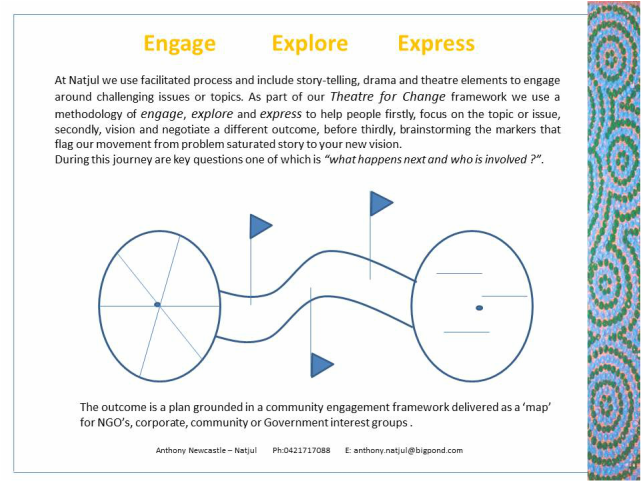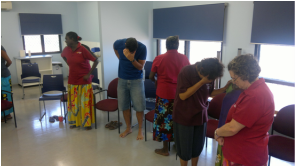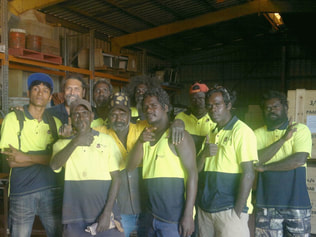What is Theatre for Change?
'a shift from programmes created outside the community or organisation,
to one where solutions collaboratively explored and informed in community'.
Theatre for Change is a solution focussed facilitative method for working with people in workplaces and communities that invite discussion around difficult topics and their related challenges.
Some of the areas in community, organisation and small group discussions where Theatre for Change has influenced engagement include - response to domestic and family violence, transition from prison/youth detention back to community, health engagement, mediation and conflict resolution.
Theatre for Change facilitators use established facilitative forum and workshop methods grounded in an Engage, Explore, Express model employing story-telling, drama (possible short scenes) and theatre techniques to make clear not only the problem story, its causes and its effect, but invite planning and collaboration around responsibilities between local people, NGO and government employees who work together to minimise the influence of the problem(s).
Depending on need, width and breadth of 'the problem', Theatre for Change can be used as an initial engagement tool to set the scene for a workshop, conference or forum, or, it can be used as a facilitative process that inform and invites ongoing engagement, participation and collaboration, or finally, it can be used as the primary engagement method across a project.
If you work, as Natjul does, from a philosophy that, 'those who have to live with the outcomes, should be the ones making the decisions', then you will more likely facilitate your engagements passing through three waves, (1) invite the telling of the problem story, its contributing elements and effect, (2) invite peoples stories around attempts to stand against the problem story, what worked and hasn't worked, and what might be possible to overcome the problem, before, (3) negotiating / agreeing course of action, commitments and planning between local and 'outside' interests working together to change or minimise the influence of the problem story.
The framework, intention and method Theatre for Change employ is informed by the people we work with. As a result our philosophy for engagement hold, encourage and influenced by 'local' cultural input for culturally appropriate outcome.
'a shift from programmes created outside the community or organisation,
to one where solutions collaboratively explored and informed in community'.
Theatre for Change is a solution focussed facilitative method for working with people in workplaces and communities that invite discussion around difficult topics and their related challenges.
Some of the areas in community, organisation and small group discussions where Theatre for Change has influenced engagement include - response to domestic and family violence, transition from prison/youth detention back to community, health engagement, mediation and conflict resolution.
Theatre for Change facilitators use established facilitative forum and workshop methods grounded in an Engage, Explore, Express model employing story-telling, drama (possible short scenes) and theatre techniques to make clear not only the problem story, its causes and its effect, but invite planning and collaboration around responsibilities between local people, NGO and government employees who work together to minimise the influence of the problem(s).
Depending on need, width and breadth of 'the problem', Theatre for Change can be used as an initial engagement tool to set the scene for a workshop, conference or forum, or, it can be used as a facilitative process that inform and invites ongoing engagement, participation and collaboration, or finally, it can be used as the primary engagement method across a project.
If you work, as Natjul does, from a philosophy that, 'those who have to live with the outcomes, should be the ones making the decisions', then you will more likely facilitate your engagements passing through three waves, (1) invite the telling of the problem story, its contributing elements and effect, (2) invite peoples stories around attempts to stand against the problem story, what worked and hasn't worked, and what might be possible to overcome the problem, before, (3) negotiating / agreeing course of action, commitments and planning between local and 'outside' interests working together to change or minimise the influence of the problem story.
The framework, intention and method Theatre for Change employ is informed by the people we work with. As a result our philosophy for engagement hold, encourage and influenced by 'local' cultural input for culturally appropriate outcome.
|
|
|
Theatre for Change
|
ABC Radio story - Theatre for ChangeClick on the play symbol below to hear the radio story by ABC Radio recorded at the National Conference on domestic violence.
For the full story visit,
|



